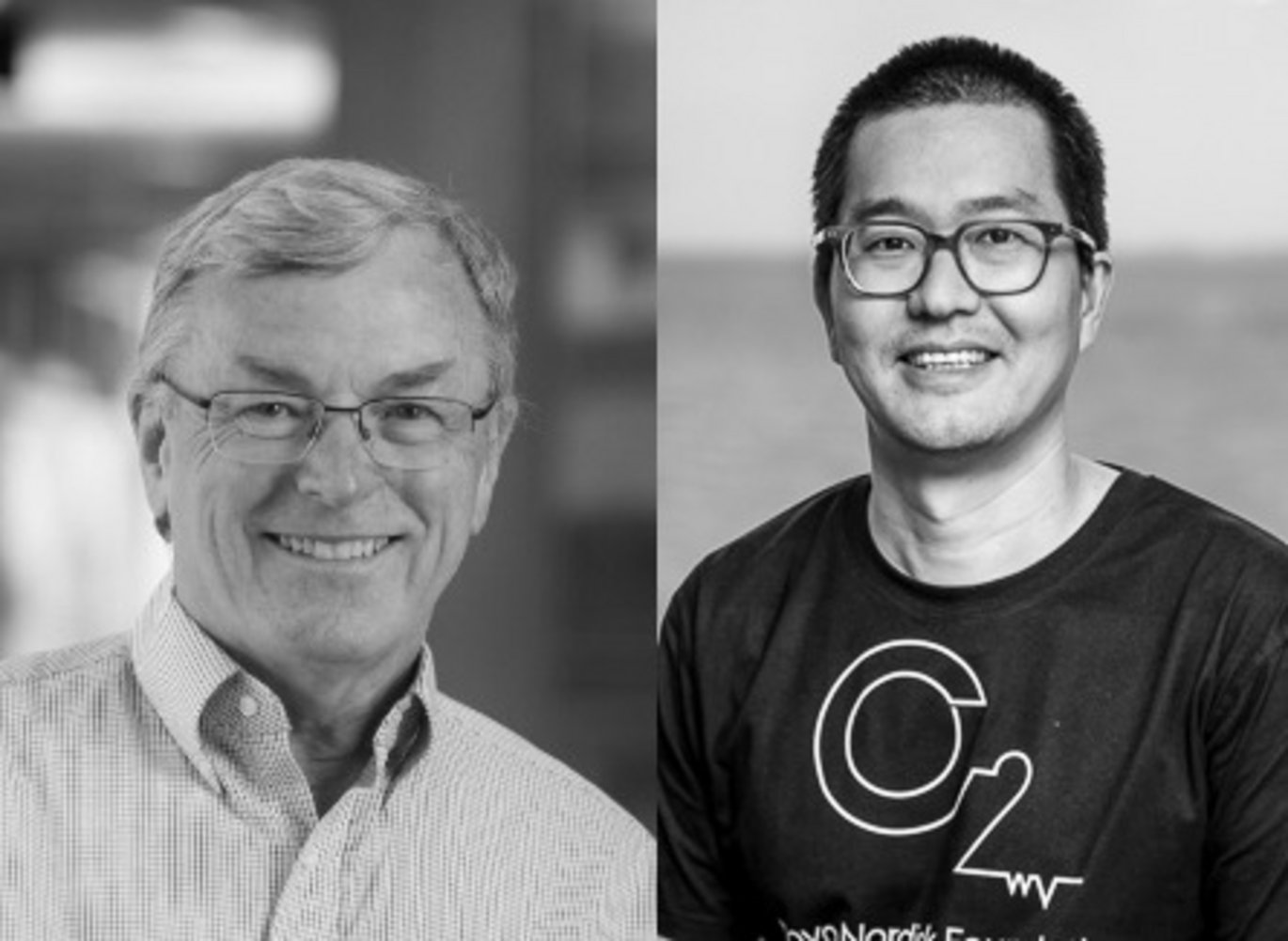CORC CO₂ Research Talks with Allan Hatton and Jiwoong Lee
CORC invites researchers, policymakers, industry partners, entrepreneurs and stakeholders to participate in our monthly online CO₂ Research Talks. We are excited to announce the first speakers in 2023: Professor Alan Hatton from MIT and CORC primary investigator Dr. Jiwoong Lee from University of Copenhagen.

Info about event
Time
Location
Online
Organizer
This year's first edition of the CORC CO2 Research Talks will focus on the capturing and separation of CO2. We are excited to welcome two experts in this field, Dr. Alan Hatton Ralph Landau Professor as well as Director at David H. Koch School of Chemical Engineering Practice at Massachusetts Institute of Technology. He will present his research along with Dr. Jiwoong Lee, Associate Professor in chemistry and leader of the Lee Group at University of Copenhagen.
Dr. Alan Hatton: Asymmetric chloride-mediated electrochemical processes for CO2 removal from oceanwater
Negative Emissions Technologies (NETs) are crucial to avert catastrophic disruption of global climate patterns caused by the continuing atmospheric accumulation of CO2 due to industrial emissions. There is considerable interest nowadays in direct air capture, i.e., removal of CO2 directly from the ambient environment, but effective means for CO2 removal from oceans, where the accumulation rates rival those in the atmosphere, could augment the other NETs to reduce the environmental burden imposed by this greenhouse gas.
Reported successful approaches to CO2 removal from oceanwaters rely on water splitting via, bipolar membrane catalysis and electrodialysis for pH modulation to release the CO2 as a gas (low pH) or carbonate salt (high pH). In his talk, Dr. Alan Hatton will introduce us to how his group describe an alternative, membrane-free, electro-swing system based on electrochemical modulation of the pH via reversible, chloride-mediated electrochemical reactions at the electrodes of electrochemical cells through which the ocean water is passed. This approach does not require expensive membranes or addition of chemicals, is easy to deploy, and does not lead to formation of byproducts or secondary streams.
Dr. Hatton and his group focus primarily on the development of electrochemical processes to facilitate chemical separations and to mediate the transformation of captured waste to useful commodity chemicals. The electrochemically-mediated separation processes that are currently under development and investigation in the group can primarily be divided into two areas: carbon capture (particularly for post-combustion carbon dioxide capture at coal-fired power plants) and water purification (including decontamination of wastewater and desalination). Electrochemical processes are also being explored as a means to facilitate chemical sequestration of carbon dioxide.
Dr. Jiwoong Lee: Carbon Dioxide-Mediated Desalination
Water is arguably the most important molecule for mankind. It is becoming more critical to secure water supply, which is increasingly difficult. Desalination is an ideal solution – taking abundant seawater and turning it into potable water – however requires energy for distillation and/or membrane-based reverse osmosis (RO) processes even though the technologies were highly optimized. Modern desalination technologies, namely RO membranes, is based on the rejection of ions (mostly sodium and chloride) on the phase boundary. Jiwoong Lee will talk about the catalytic utility of CO2 and amine-based materials for “capturing" chloride ions from seawater. This is the first step toward ideal desalination requiring no heat energy, while capturing and sequestrating CO2 simultaneously based on the well-known Solvay process.
Dr. Lee and his research group work on CO2-functionalization and catalysis to find ideal solutions towards creating more valuable resources to compensate the input energy in the conversion process. This implies that this industrial waste, CO2, can be transformed into useful chemicals, serving as a fuel source for water purification and desalination. By studying these chemical processes, the understanding of the chemistry and physics of CO2 is increasing, thus providing essential information and knowledge for carbon capture, storage and utilization.
At CORC, the Lee group concentrate on the development of the next generation technologies for CO2 capture to forge viable solutions for imminent global issues related to anthropogenic CO2 emission, by applying the knowledge acquired from organic synthetic chemistry and catalysis. In this context, reducing the energy penalty in desorption of CO2 in carbon capture processes emerges as a critical goal. This will be possible by identifying compatible direct chemical or biological conversion of the captured CO2 to the final products of interest, providing the ultimate solution for carbon capture, storage and utilization, preferentially from thin air via direct air capture (DAC) or from point sources.
Read more about the CORC CO2 Research talks series and see more upcoming talks here.
